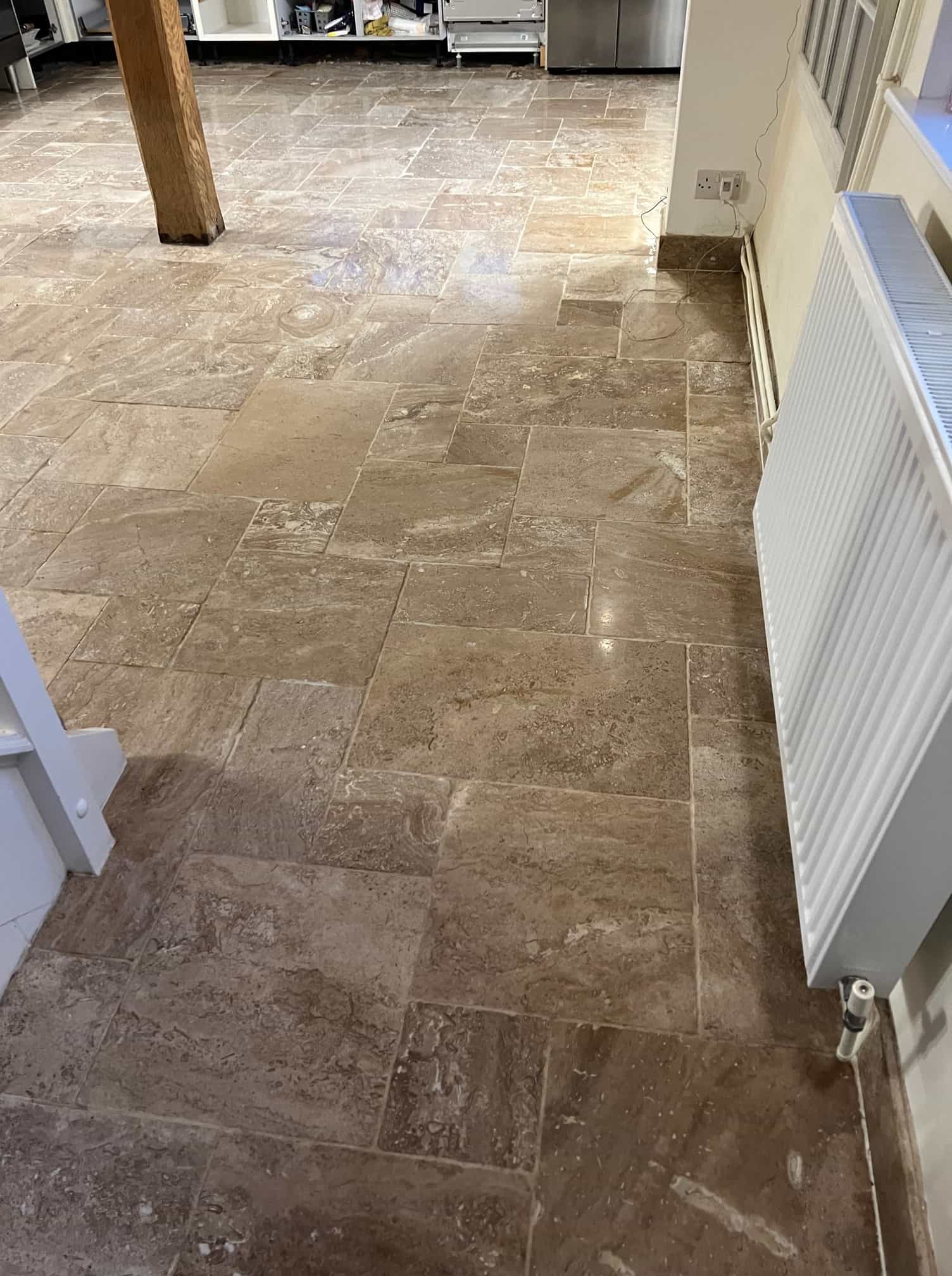Travertine Tiled Kitchen Floor Refinished in Kings Norton
The photographs below are of a Travertine tiled floor installed in the kitchen of a 17th century cottage in the small Leicestershire village of Kings Norton. The owner had called us in to deep clean and refinish the Travertine tiles which had become soiled, dull, the grout had darkened in places and there were lots of holes that needed filling.
This issue is quite normal for a natural stone floor which benefits from having a sealer in place to stop dirt from becoming trapped in the pores. Travertine can also suffer from pitting which are small holes in the surface of the tile, these pits attract dirt and should be filled to prevent that happening. With Travertine especially you need to ensure a neutral ph. cleaner is used as anything stronger can exacerbate the problem.
Deep Cleaning a Travertine Tiled Floor
The first job was to give the floor a thorough clean with a particular focus on the grout and pitting. It was clear the sealer had pretty much worn off over time so Tile Doctor Pro-Clean was applied using a 1:4 dilution with water. The solution was left to soak into the floor for ten minutes first to help break down the soil build-up. The Pro-Clean was then worked into the Travertine tile and grout using a floor buffing machine fitted with a Black scrubbing pad and extra weights to increase contact.
 |
 |
The soiled cleaning solution was then rinsed off and the soiling extracted using a wet vacuum. This process was repeated until I was happy the stone and the grout were as clean as possible.
With the dirt removed it made it easier to highlight the holes that needed to be filled. For filling I used a straw-coloured resin glue which matched the natural colours of the Travertine very well. Once the resin has set the next move was to burnish the stone to further clean it, remove light scratches and generally improve its appearance. This process also helps the filled pits blend in with the stone.
 |
 |
Burnishing the floor involves stripping back the stone using a coarse 400-grit diamond encrusted burnishing pad and then building up the finish with a medium 800-grit pad to restore the finish and add the light sheen our customer had requested. The floor was given a light rinse and extraction in-between pads and then a thorough rinse afterwards to remove the slurry generated during burnishing.
Sealing Travertine Kitchen Floor Tiles
The floor was left to dry off naturally and we returned later to apply a sealer which for this floor the customer had requested a natural finish. After ensuring the floor was dry it was then sealed to saturation point using Tile Doctor Ultra-Seal which is an impregnating sealer that penetrates deep into the pores of the stone to ensure dirt cannot become ingrained there. This sealer doesn’t alter the look of the stone resulting in the natural appearance the customer had specified.
 |
 |
I left a bottle of Tile Doctor Stone Soap for aftercare cleaning; this is a ph. neutral product that will gently clean the stone and improve patina. If your going to use a supermarket cleaning product always read the label and ensure they are compatible for use with sealed natural stone.
Professional Maintenance of Travertine Floor Tiles in Leicestershire
Travertine Tiled Kitchen Floor Refinished in Kings Norton Read More »


